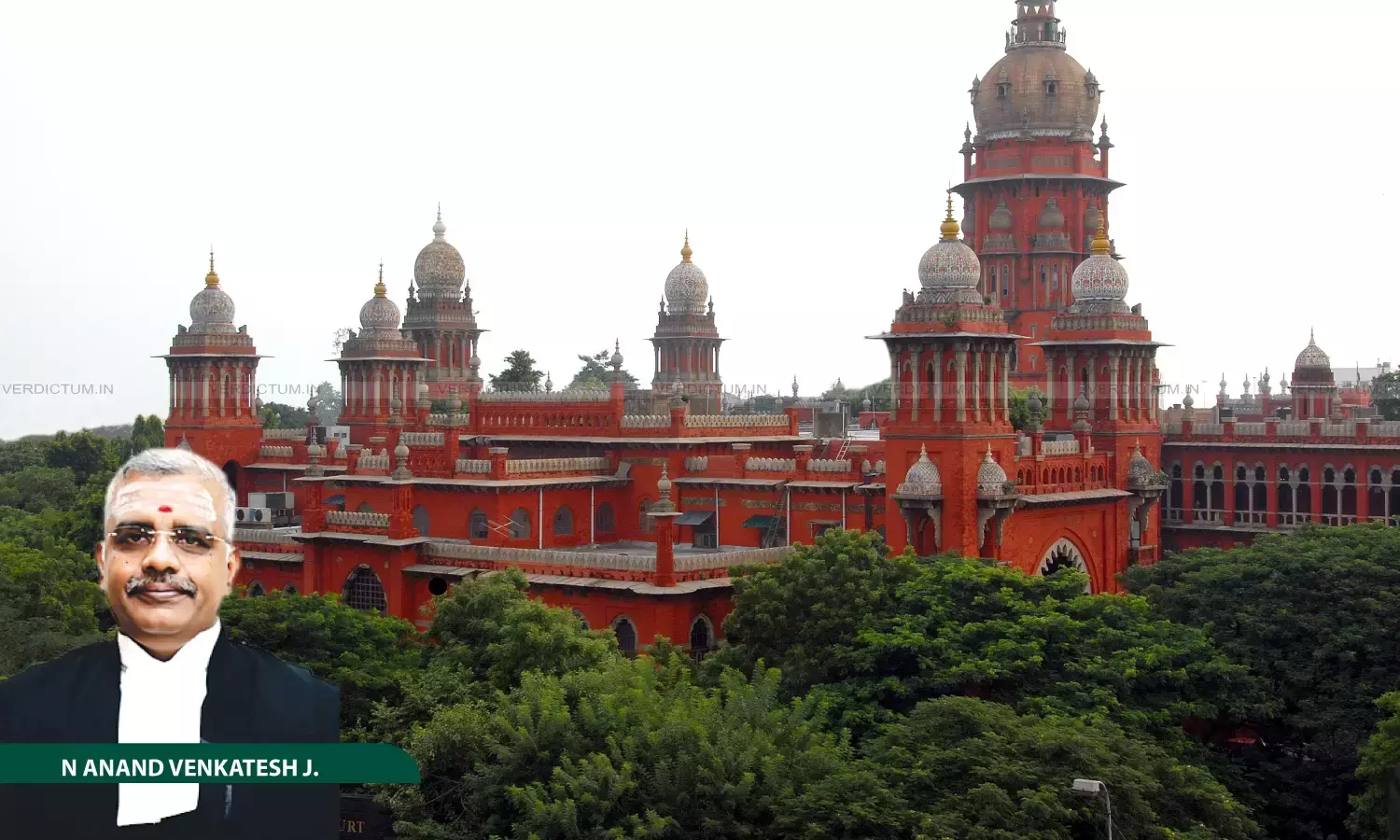Following Natural Justice Principles Is Non-Negotiable Even If Arbitral Tribunal Has Composition Of Family Elders: Madras High Court
The Madras High Court was dealing with a case where the Arbitrators were not only lay persons, but were also the family elders, who consented to resolve the dispute between two brothers.

Justice N. Anand Venkatesh, Madras High Court
The Madras High Court clarified that following principles of natural justice is non-negotiable even if the Arbitral Tribunal has composition of family elders.
The Court clarified thus in a Petition challenging the award passed by the family elders who were chosen by parties to arbitrate the dispute and resolve the same.
A Single Bench of Justice N. Anand Venkatesh held, “At the time of testing the award, as has been stated supra, this Court will bear in mind the standard that has to be applied while dealing with the award passed by lay persons and more particularly when they also happened to be the family elders. However, whatever may be the composition of the Arbitral Tribunal namely a legally trained mind or lay person or family elders, following the principles of natural justice is non negotiable. If the award is passed without affording an opportunity, it will fall foul of Section 34(2)(a)(iii) of the Act.”
The Bench was dealing with a case where the Arbitrators forming part of the Arbitral Tribunal were not only lay persons, but were also the family elders, who consented to resolve the dispute between two brothers considering the overall interest of the family and its business.
Advocate H. Karthik Seshadri appeared for the Petitioners, while Advocate Gautam S. Raman appeared for the Respondents.
Factual Background
The parties entered into an arbitration agreement in 2005 and decided to refer all their disputes pertaining to 5 companies/entities to three persons, who were none other than their family elders (uncles) to resolve the dispute and take a final decision. The manner, in which, the proceedings would have to be conducted, was provided under Clause 5 of the agreement and it was agreed that the award passed by the Arbitral Tribunal should be final and binding on the parties.
The Petitioner namely M. Maher and the 4th Respondent namely M. Mahendra were brothers. They constituted four companies and there was also an HUF (Hindu Undivided Family) for which Mahendra was the Kartha. The disputes arose between the parties in relation to the affairs of the companies and their precarious financial status, which were managed by Mahendra and his family from the year 1993 till 2005. The Arbitral Tribunal passed an award and being aggrieved by the same, the Petitioners approached the High Court.
Reasoning
The High Court in view of the facts and circumstances of the case, observed, “In the case in hand, the award passed by the Arbitral Tribunal has to be necessarily interfered since the petitioner in O.P.No. 80 of 2006 was not given an opportunity to present his case at a very crucial stage of the proceedings. Vide letter dated 01.10.2005, the petitioner in O.P.No.80 of 2006 specifically requested for rescheduling the meeting from 05.10.2005. However, for the letter dated 01.10.2005, he did not receive any communication from the Arbitral Tribunal and the final award itself came to be passed on 09.10.2005/ 10.10.2005. This certainly amounts to violation of the principles of natural justice.”
The Court said that the award can be held to be in conflict with the Public Policy of India, if it has been passed in violation of the principles of natural justice.
The Court was of the view that it has to necessarily interfere with the award passed by the Arbitral Tribunal only on the ground that the Petitioner M. Maher was not provided with sufficient opportunity to present his case at the most crucial stage of the proceedings and hence, there has been a violation of the principles of natural justice.
“Accordingly, the award dated 09.10.2005/10.10.2005 is liable to be interfered under Section 34(2)(a)(iii) and also under Section 34(2)(b(ii) of the Act”, it added.
Accordingly, the High Court allowed the Petition and set aside the impugned award.
Cause Title- M. Maher Dadha v. S. Mohanchand Dadha & Ors. (Neutral Citation: 2025:MHC:2424)


